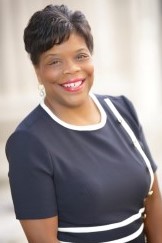At the Heart of Family Learning: A Community Built on Hope
“We must accept finite disappointment, but never lose infinite hope.”
Martin Luther King Jr.
Last week, my family and so many other families across the country celebrated the life and legacy of Martin Luther King Jr. I find resonance in my work for many of Dr. King’s ideas, but lately I’ve especially been drawn to the quote above and his reference to hope.
What does it mean to have infinite hope? Some might say that hope without regard to disappointment is the result of naivete. In fact, scientists over the last twenty years have developed a detailed and nuanced understanding of hope and its integral ties to wellbeing. The Oxford Handbook of Hope even provides a formula for understanding hope:
Hope = Agency Thoughts x Pathway Thoughts
Simply put, this formula demonstrates that hope is what happens when our motivation to achieve a goal (agency thoughts) is combined with our ability to develop concrete plans to reach that goal (pathway thoughts).
That is where the true power of hope lies. It represents more than the simple belief of optimism. Here, at the start of a new year, hope helps us envision the future we want to see and the strength to take action to achieve that vision. Hope doesn’t assure us that we’ll succeed, but it can bring joy to the work and a lightness to the journey.

Learning and education are also fundamentally about hope–the hope for a better job, for a raise, for the dignity that comes from knowing that you can support your family. It is hope that keeps our family literacy, family engagement, and family leadership participants striving for something better for their children and for themselves, and it is hope that drives communities to transform systems in search of better opportunity for all.
In order to achieve the just communities that the moment demands–and that families deserve–we must overcome these challenges. Indeed, many families, educators, policymakers, and community-based organizations across the country are working to do just that. It is hope that enables communities to use agency thinking to visualize the just and thriving environments that are possible, and pathway thinking to establish the processes and partnerships that will bring that vision to life. There is, in fact, nothing more sound than a community built on the agency and action of hope.
Washington, D.C. mother of two and Activate! National participant, Ra’Chelle Dennis, knows the power of that kind of hope firsthand. Her second son, Noah, born in 2017, struggled to meet his developmental milestones. As a single mother, Ra’Chelle couldn’t afford the kind of quality early childhood education that might make a difference. Despite these challenges, Ra’Chelle had hope that she could help him navigate a pathway to a brighter future. Watch as Ra’Chelle discusses her journey at the 2023 Families Learning Conference.
For me, Ra’Chelle’s story is a reminder that when we combine hope with the willingness to work towards positive change, sometimes the outcomes will exceed our wildest expectations. In recent months, I’ve had the chance to meet with partners in communities across the country who share Ra’Chelle’s sense of hope and desire for change. These communities are ready to work alongside NCFL to build family learning systems that are responsive to the needs and voice of children and families.
At NCFL, we expect to see great things happen for children and families as we work with community partners to realize a vision of equitable and thriving communities through agency and pathways to positive academic and economic change–the very definition of hope. We invite you and your community to join us on the journey. There is hope enough to spare for us all.
Editor’s Note: While today we celebrate the words of Dr. Martin Luther King, we also mourn the loss of his youngest son, Dexter Scott King. We wish the King family peace at this difficult time.
ABOUT THE AUTHOR

A lifelong educator and national thought leader for teaching and learning, Dr. Felicia C. Smith brings decades of valuable experience to advance NCFL’s mission of working to eradicate poverty through education solutions for families. Having served in a variety of leadership roles in P-12, higher education, nonprofit, and philanthropy, her career has allowed her to experience leading systems and develop a unique vantage point of a learner’s educational trajectory from preschool to adulthood. Smith holds an Ed.D. in education leadership and administration from the University of Kentucky, and an M.A. in elementary education with an emphasis on K-12 literacy development and B.S. in elementary education from the University of Louisville.
Follow Dr. Felicia C. Smith on X and LinkedIn.